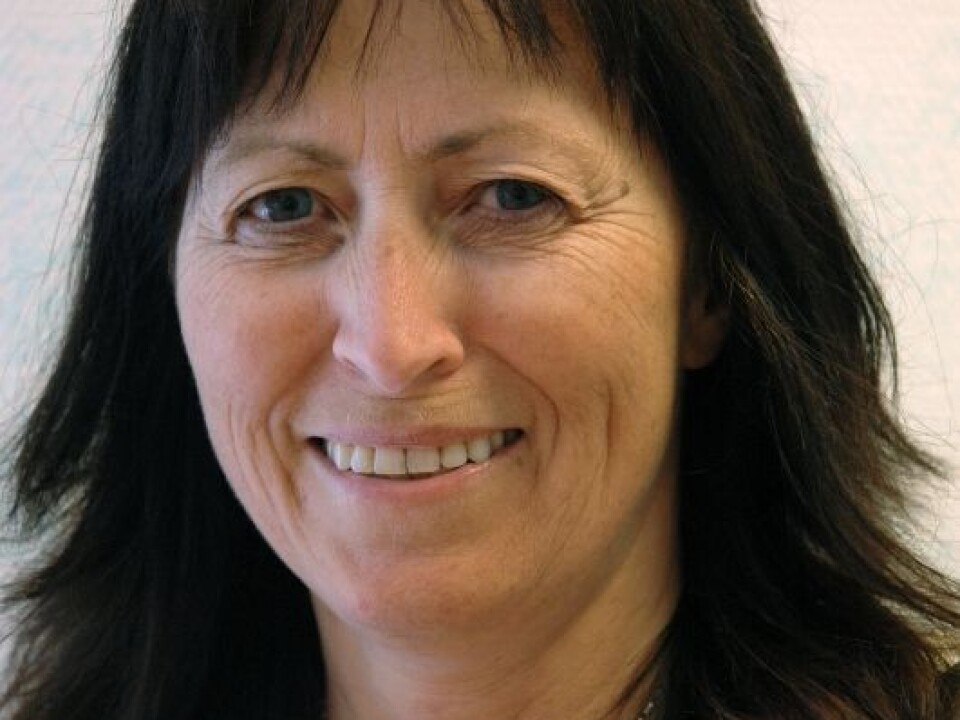
Reporting sex crimes improves health
The majority of those who report incest and abuse to the police feel they made the right decision. Pressing charges bolsters health and leads to more freedom to get on with their lives.
Many victims of sex offences experience that reporting the crime to the police reinforces their credibility and self-respect.
This is documented in a study of formal complaints seen from a health perspective by Hildur Vea in her doctoral thesis at the Nordic School of Public Health in Gothenburg.
“It’s a way of expressing, both to the abuser and to others, that that the responsibility is shouldered by the perpetrator,” explains Vea.
Those who file a formal complaint do not tend to regret it. Participants in the study say they are glad they pressed charges even though it involved some new burdens. A total of 85 percent think it was the correct decision.

Vea says that filing a complaint is emotionally taxing but those who did so experienced more freedom and afterwards could cope better with the routines of daily life.
The study comprised 173 persons, 152 women and 21 men. The participants were recruited from incest survivors’ support groups.
Many of those who had not filed formal complaints had confronted the abuser on their own.
Through three phases
Victims go through a three-phase process from the time of their abuse until they are ready to report it to the police.
The three phases are: Avoidance, Recognition and Acceptance.
It can take up to 30 years before the victims understand that they have been subjected to sexual abuse. In this phase they try to ignore or negate the abuse, they don’t tell anyone what has happened. Half of all such victims forget that it has occurred; they suppress their memories.
Vea explains that sexual abuse is not reported when the victims are in a phase of avoidance. Many need extensive time to work through this initial process – 60 percent of her informants had spent ten years or more at it.
Often the informants were plagued by health problems they couldn’t understand or explain.
“When you enter the second phase, it can trigger a crisis but it can also be a gradual process. Recognition is often a turning point in the life of a victim."
Viewed as a victim
Many of those who press charges say that people in their circles treat them differently after the story of the abuse is revealed.
“This is a stressful period with lots of troubling thoughts,” says the researcher.
"What happens now? What will people think about me? Many victims are ashamed. How will the perpetrator react? How long will the legal proceedings take?"
Charges can often be dropped, and for many this is a new defeat. Yet even when a case is dismissed or charges dropped, victims feel they did the right thing.
Pressing charges is a huge ordeal and those who are doubted or not recognised by the police or health services regret filing a complaint. Some get no support in their local environment. And 25 percent say they received no help or support from a psychiatrist or psychologist. Around 19 percent experienced that their doctor wouldn’t help and 12 percent say psychiatric hospitals didn’t take them seriously.
“When doctors and psychologists signal by silence that sexual abuse isn’t an important theme, informants often interpreted it as meaning that others didn’t care about the abuse.”
Recognition
Vea was surprised that so many victims spent such a long time invalidating or forgetting the abuse.
“Many suffered extensive health problems," she says. "The younger ones were quicker at seeking support so it would seem the more frankness about the theme we have in society, the easier it is to ask for help."
She adds that those who managed to address the problem and report it got on with their lives. Many of them regained their health and could get off medication. They experienced less pain, overcame personal problems and felt more capable.
The researcher thinks much more can be done to aid abuse victims.
She suggests that authorities can give more support to help victims overcome their traumas. The police and lawyers should be made more aware of the issue. Most victims were very satisfied with their own lawyers but not with the defendants’ lawyers.
“Plenty can be done to shorten the long avoidance phase and thus support victims who need to decide whether to file complaints about sexual abuse,” says the researcher, who has a background as a psychiatric nurse and leader of an incest group and is now a gestalt therapist.
-----------------------------------------
Read this article in Norwegian at forskning.no
Translated by: Glenn Ostling




